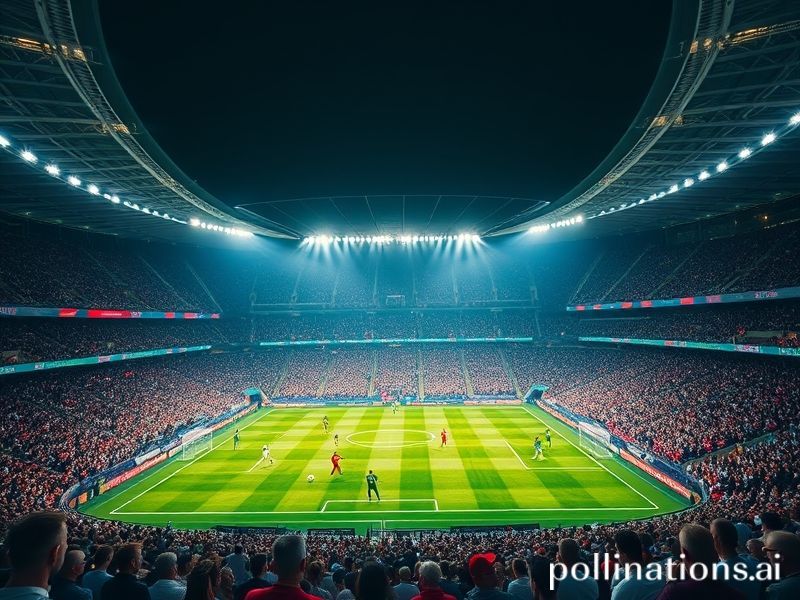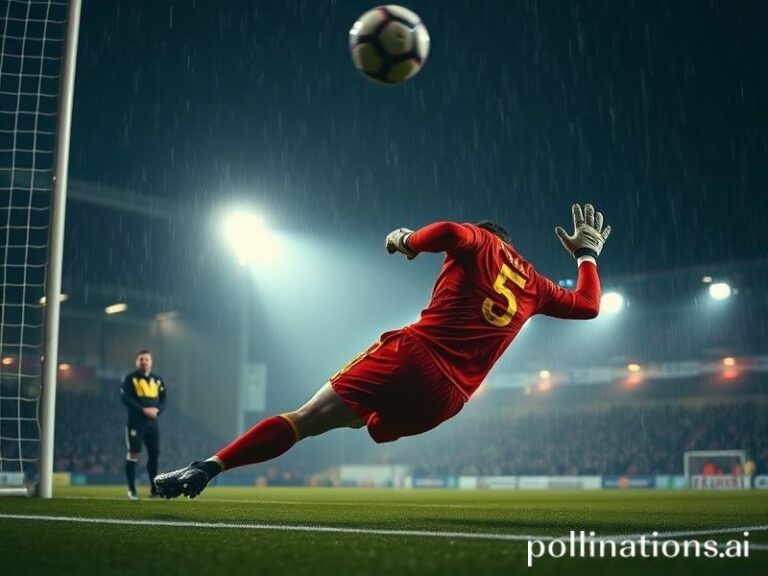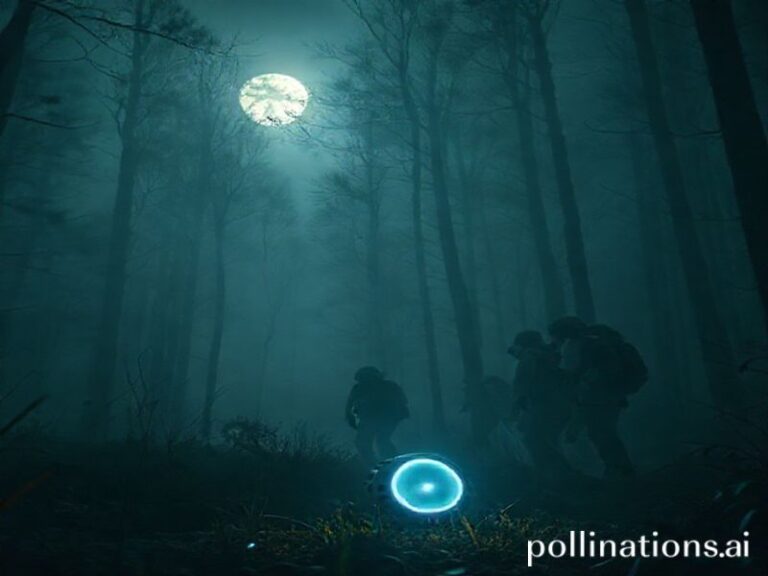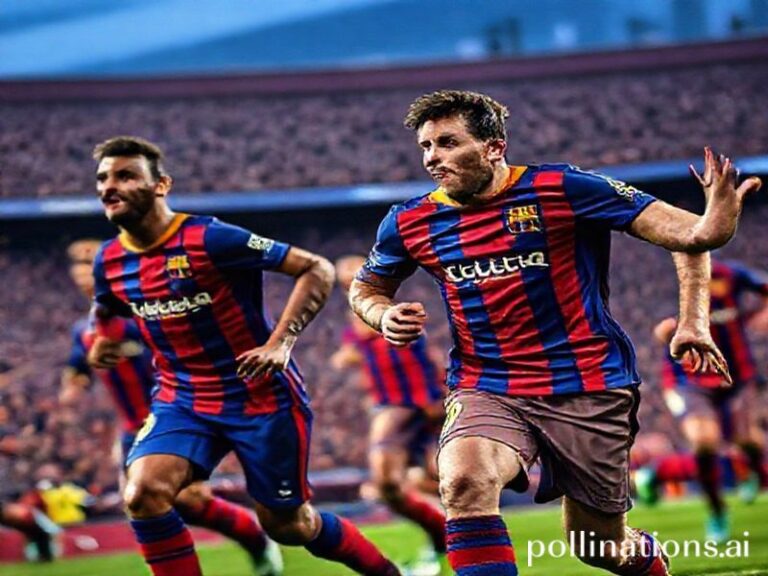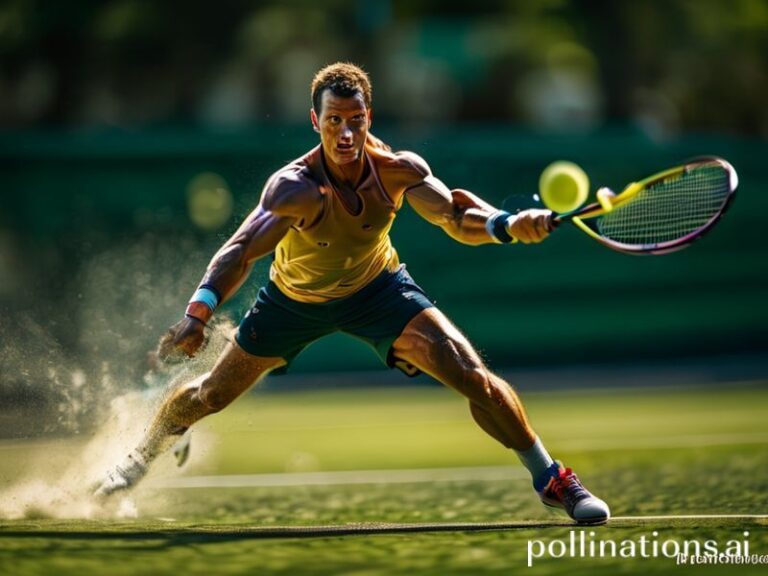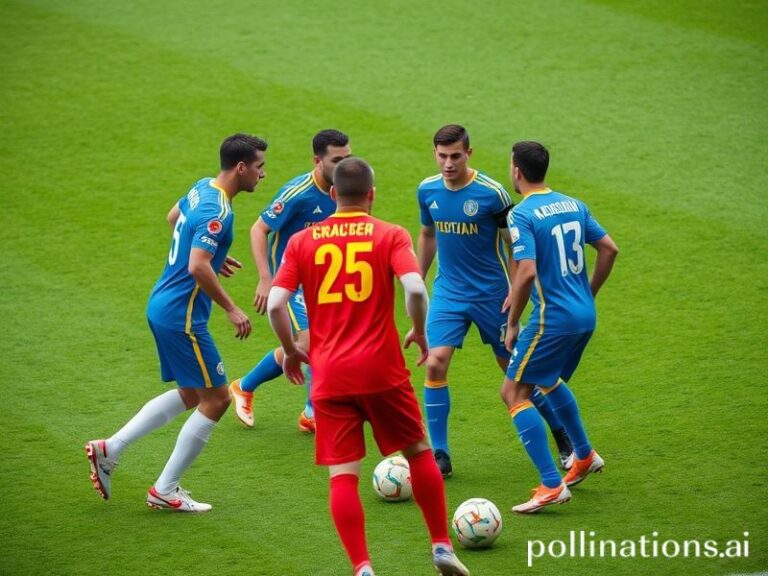Bayern vs. Werder: One Match, 193 Countries, and the Beautiful Game’s Ugly Mirror
Bayern vs. Werder: A Microscopic Peek at the Macro-Mess We Call Globalization
By our correspondent who once watched a Champions League final in a Pyongyang hotel bar—don’t ask how the Wi-Fi worked.
On the surface, Saturday’s collision between Bayern Munich and Werder Bremen is merely a Bundesliga fixture, the sort of domestic spat that European sports schedules cough up every week like an old smoker clearing his throat. Yet, lift the lid and the game becomes a miniature diorama of Planet Earth’s ongoing nervous breakdown.
Consider the ownership ledger. Bayern’s corporate soul is a joint venture between Adidas (German), Audi (also German, despite the Latin name), and Allianz (so German it probably yodels). Meanwhile, Werder Bremen’s majority stake is essentially held by a clutch of local fans who still believe in quaint concepts like “democracy” and “not selling out to petrostates.” In 2024, that makes Werder the footballing equivalent of a vinyl record shop surrounded by NFT galleries—romantic, doomed, and faintly aromatic of dust and resistance.
Now zoom out. The match will be streamed in 193 countries, most of which have never located Bremen on a map but can recite Robert Lewandowski’s grocery list if TikTok wills it. Broadcast rights money sloshes through offshore accounts faster than you can say “UEFA Financial Fair Play,” a phrase that ranks somewhere between “military intelligence” and “airline food” on the global credibility index. Each of those pixelated passes will be monetized by betting syndicates in Manila, crypto-scammers in Dubai, and at least one hedge-fund intern in Greenwich who just discovered that pressing “buy” on a yellow card prop is easier than curing cancer.
The geopolitical cameos are relentless. Bayern’s bench features a Canadian left-back whose other passport is, naturally, Portuguese, plus a South Korean center-back whose surname Kim is shared by roughly thirty percent of the peninsula. Werder counters with a U.S. striker who learned the words to “You’ll Never Walk Alone” in an MLS academy that doubled as a tax write-off for a cereal conglomerate. Somewhere in an airport lounge, a bewildered customs officer is rubber-stamping humanity’s collective identity crisis.
Even the grass beneath their boots carries baggage. The hybrid turf was grown in the Netherlands, sprayed with Dutch water, Dutch fertilizer, and—this week only—Dutch tears after the national team failed to qualify for another summer festival of disappointment. Climate change, meanwhile, has turned Munich’s April weather into a coin flip between Oktoberfest and Saigon. Players now hydrate with isotonic drinks developed in a Swiss lab whose parent company also makes toothpaste for anxious Labradors. Nothing says “peak civilization” quite like electrolytes cross-marketed to both footballers and golden retrievers.
And then there is the VAR booth, football’s answer to HAL 9000, calmly ruining weekends with the cold objectivity of a TSA agent. A single offside call in the 78th minute will trigger 4.7 million tweets, half of them from burner accounts operated by bored teenagers in Lagos who support Bayern because red matches their favorite meme template. By the time the referee trots over to the pitchside monitor, global supply-chain managers in Singapore have already adjusted aluminum futures based on the perceived emotional volatility of the Bayern bench. Somewhere, Klaus in logistics is Googling “Does Sadio Mané pouting affect freight rates?” (Spoiler: it does.)
What does it all mean? If Bayern win, the Bundesliga title race collapses into yet another Bavarian coronation, and social-media cynics will recycle jokes about German efficiency. If Werder nick a point—or, heaven forbid, three—pundits will hail it as proof that romance survives late capitalism, at least until the next quarterly earnings call. Either way, the planet keeps spinning, slightly wobblier, while the rest of us refresh livescore apps in the shadow of whatever fresh apocalypse tomorrow has scheduled.
Final whistle blows, players swap shirts manufactured in Bangladeshi factories whose workers earn less per month than the average Bayern substitute makes per Instagram post. Somewhere in the stands, a child clutches a foam finger that will outlast the polar ice caps. We call it football; the universe calls it Tuesday.

